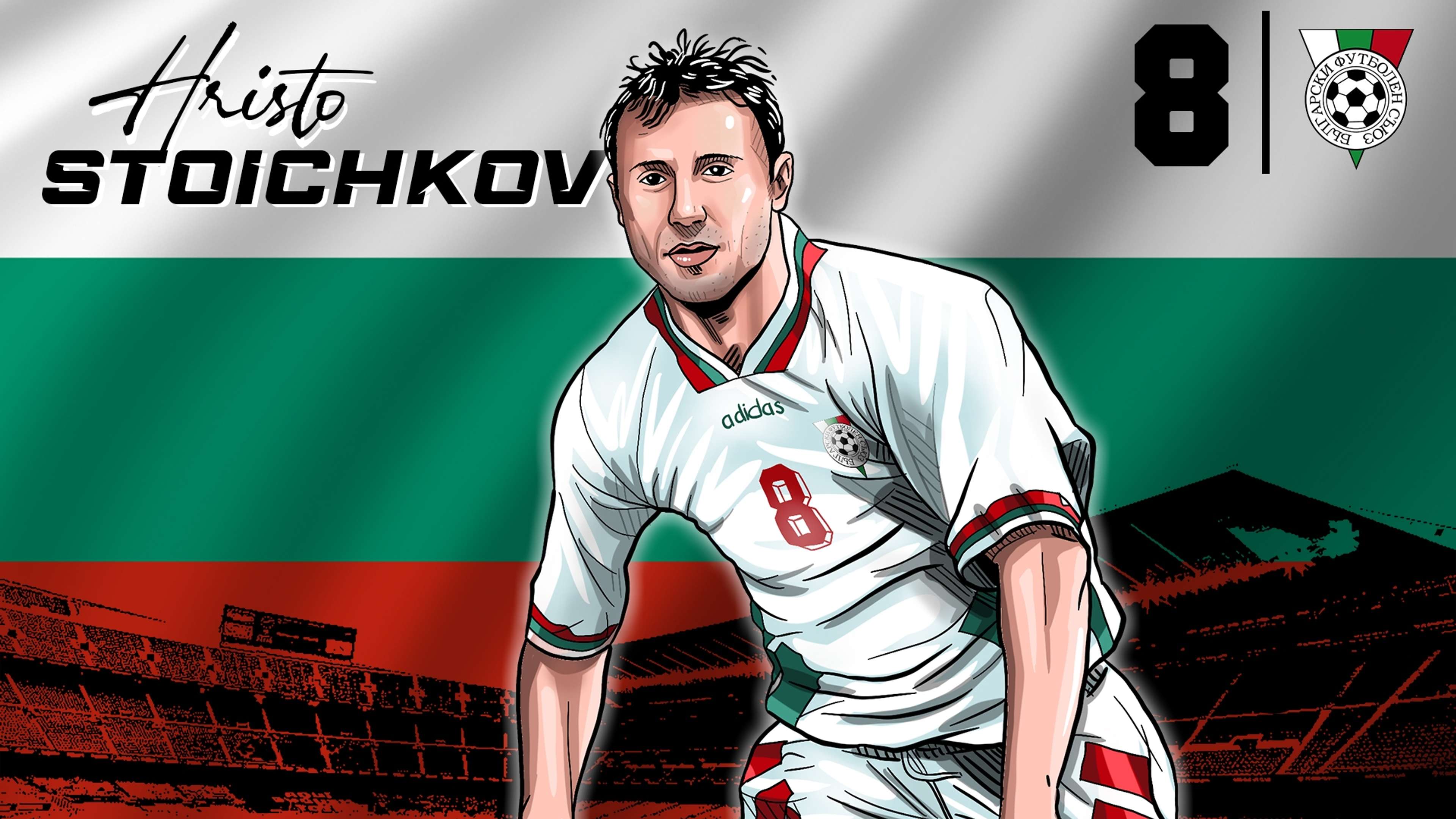Hristo Stoichkov has always been immensely proud of the fact that he shares a first name with his grandfather. But he's also long enjoyed the religious connection.
During the 1994 World Cup, he mused, "With this name, there's always been one [Christ] above, and one below. The one below also performs miracles."
Blasphemous? Perhaps. But also arguably accurate. Bulgaria were certainly a revelation in the United States that summer, and Stoichkov’s performances heavenly.
The man was no saint, of course, as he admitted himself. There was a rage inside him, one that drove him all the way to the pinnacle of his profession, but also resulted in him repeatedly stepping over the line.
"I was raised in the middle of the street," he once told reporters in Spain. "You learn certain things there..."
Next Match
Discipline obviously wasn't one of them. Indeed, his career could have ended shortly after it had begun.
Stoichkov was still only a teenager when he was involved in a mass brawl in the Bulgarian Cup final that saw him promptly hit with a lifetime ban.
However, his suspension was reduced to a solitary month on appeal and Stoichkov quickly set about making the most of his reprieve.
In 1989, he won the Golden Shoe after netting 38 times in 30 league games. It was a performance in Europe, though, which earned him a move to Barcelona the following summer, with the forward netting twice in a Cup Winners' Cup clash at Camp Nou.
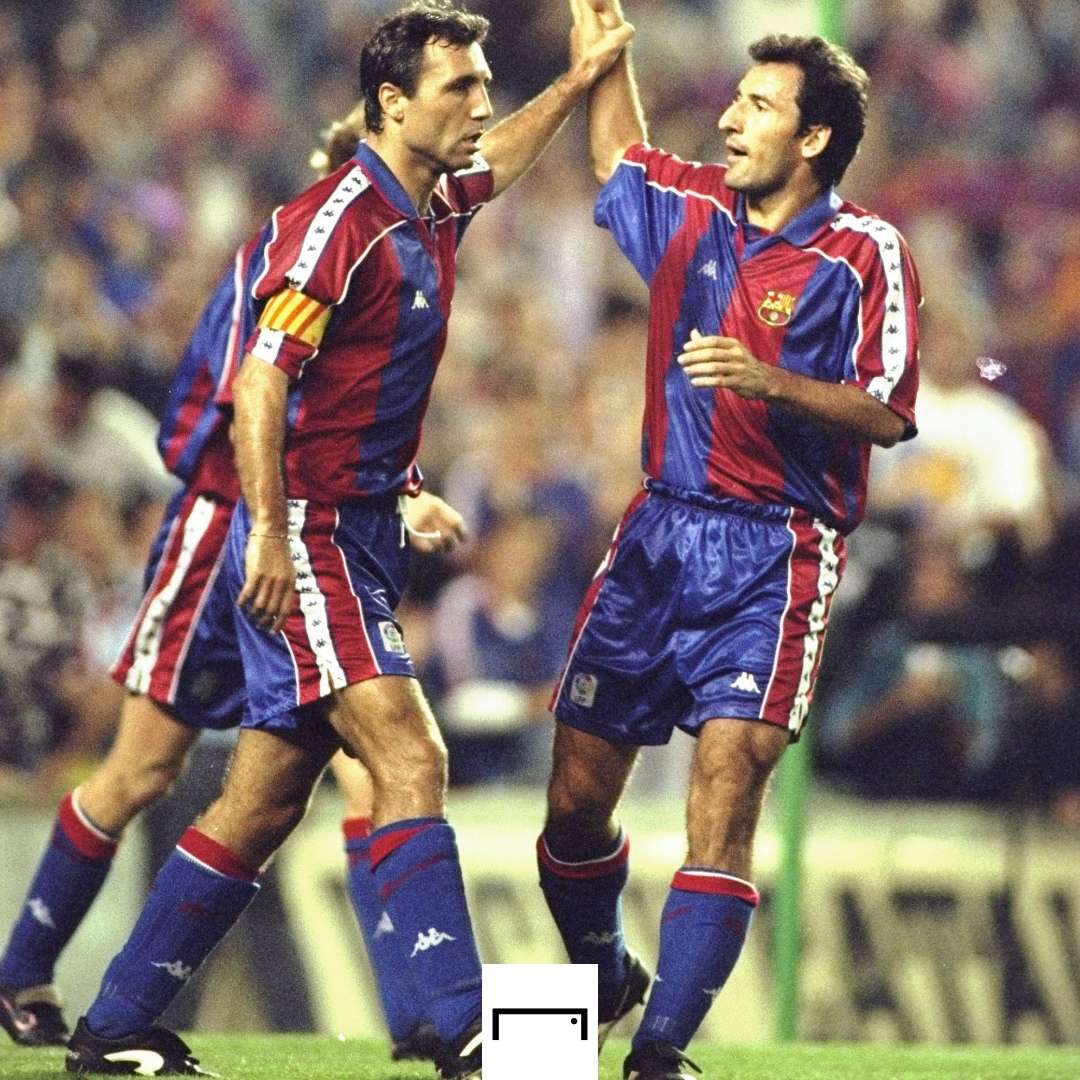 Getty/GOAL
Getty/GOALBarca looked to have made a gross error of judgement when Stoichkov was sent off against Real Madrid in the Supercopa de Espana shortly after arriving in Catalunya – and then, to make matters much, much worse, stamped on the foot of match referee Urizar Azpitarte.
Once again, an appeal went his way, with an initial six-month suspension reduced to 10 games, and, despite never quite seeing eye to eye with Johan Cruyff, Stoichkov went on to become a key member of the Dutchman's 'Dream Team', helping Barca win their first European Cup, at Wembley in 1992, as well as four consecutive Liga titles.
In his prime, was a ferocious and fearsome forward, thoroughly deserving of his nickname, 'The Dagger'. He was blessed with a thunderous left foot, while his pace as explosive as his temper.
There was an unselfish side to him, though. A versatile attacking talent, he often served as a provider to Romario on the pitch, and sometimes looked out for the nightlife-loving Brazilian off it.
Stoichkov may have been a difficult character, and a lazy player, but he could be a good team-mate at times.
He was by no means universally loved in the Bulgaria dressing room but, before the country's must-win World Cup qualifier against France in November 1993, he issued a team talk that passed into legend in his homeland.
"Is (Eric) Cantona better than me?" he roared. "Is (David) Ginola stronger than Letchkov? Maybe on paper but it will be us on the pitch!"
A fired-up Bulgaria went out and silenced the Parc des Princes on one of the most infamous nights in French football history, with Emil Kostadinov earning the visitors the most dramatic of victories by finishing off a brilliant breakaway in injury time.
Stoichkov, like the rest of his compatriots, was ecstatic. He would finally have the chance to play in a World Cup, and on the back of the most prolific season of his Barcelona career (24 goals in 48 games in all competitions).
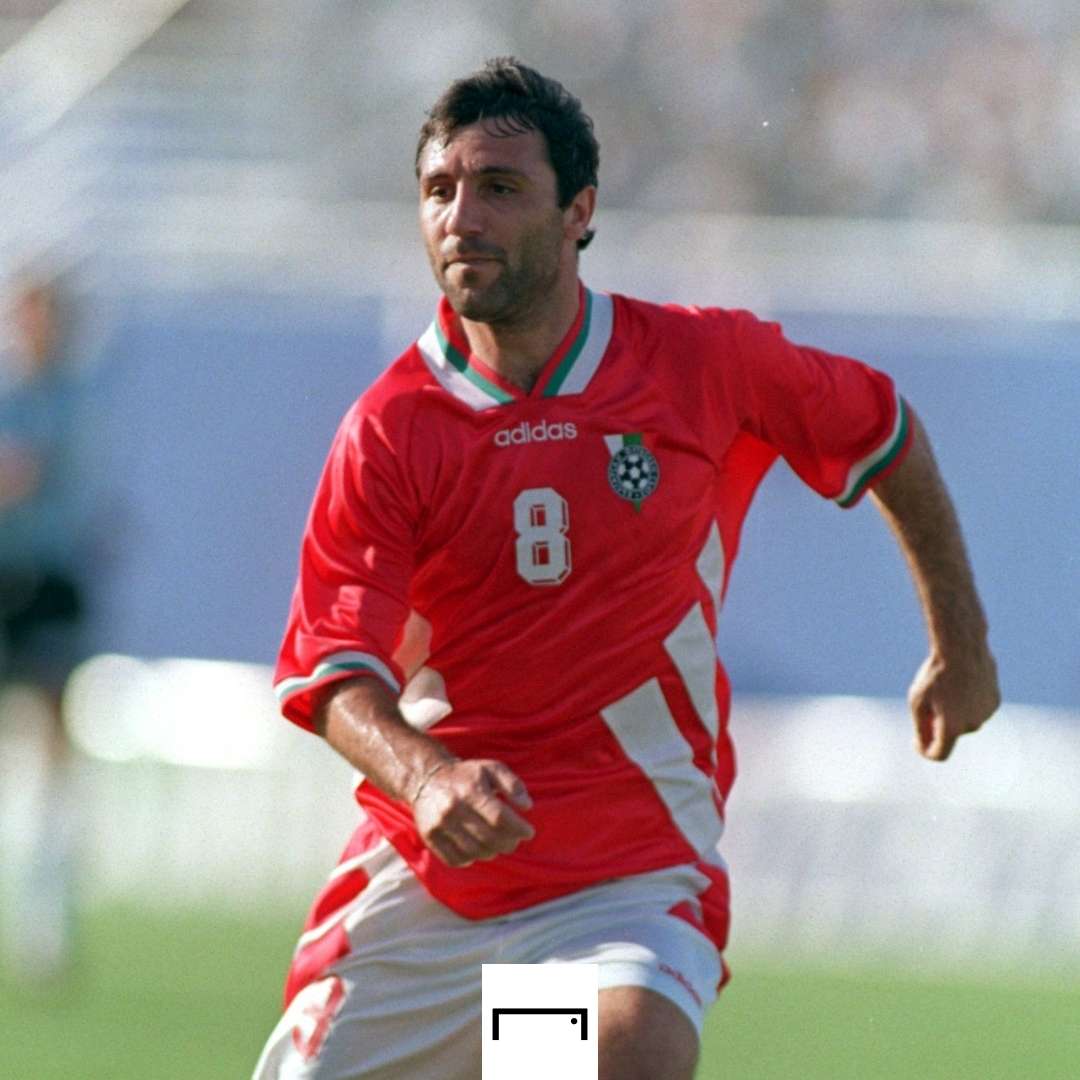 Getty/GOAL
Getty/GOALThe 1993-94 campaign had ended in crushing disappointment for the Catalans, routed by a rampant AC Milan in the final of the Champions League.
But Stoichkov insisted that he had already forgotten all about Athens by the time he arrived in the US for what proved the highlight of his career. "My policy is always to do better on the pitch," he said, "that's all."
Further disappointment looked set to follow at international level, though, as Bulgaria were sensationally hammered 3-0 by Nigeria in their tournament-opener in Dallas.
However, they bounced back by dishing out a beating of their own, with Stoichkov coolly converting two penalties in a 4-0 win over Greece.
Bulgaria still needed something from their final fixture to progress, which looked a big ask given they were going up against Argentina, who had won their opening two games, with a resurgent Diego Maradona pulling the strings.
The legendary No.10 was ruled out of the game, though, after failing a drugs test and Stoichkov led Bulgaria to victory over a clearly shell-shocked Albiceleste side, scoring the crucial first goal in a 2-0 win with an instinctive toe-poked finish.
Despite his joy at having helped his country seal a place in the knockout stage, Stoichkov couldn't help but feel for Maradona, whom he tried to contact while the tournament was still going on "to tell him that I understand, that I'm with him."
Still, while he may have been hit hard by his friend's fall from grace, it didn't show on the field.
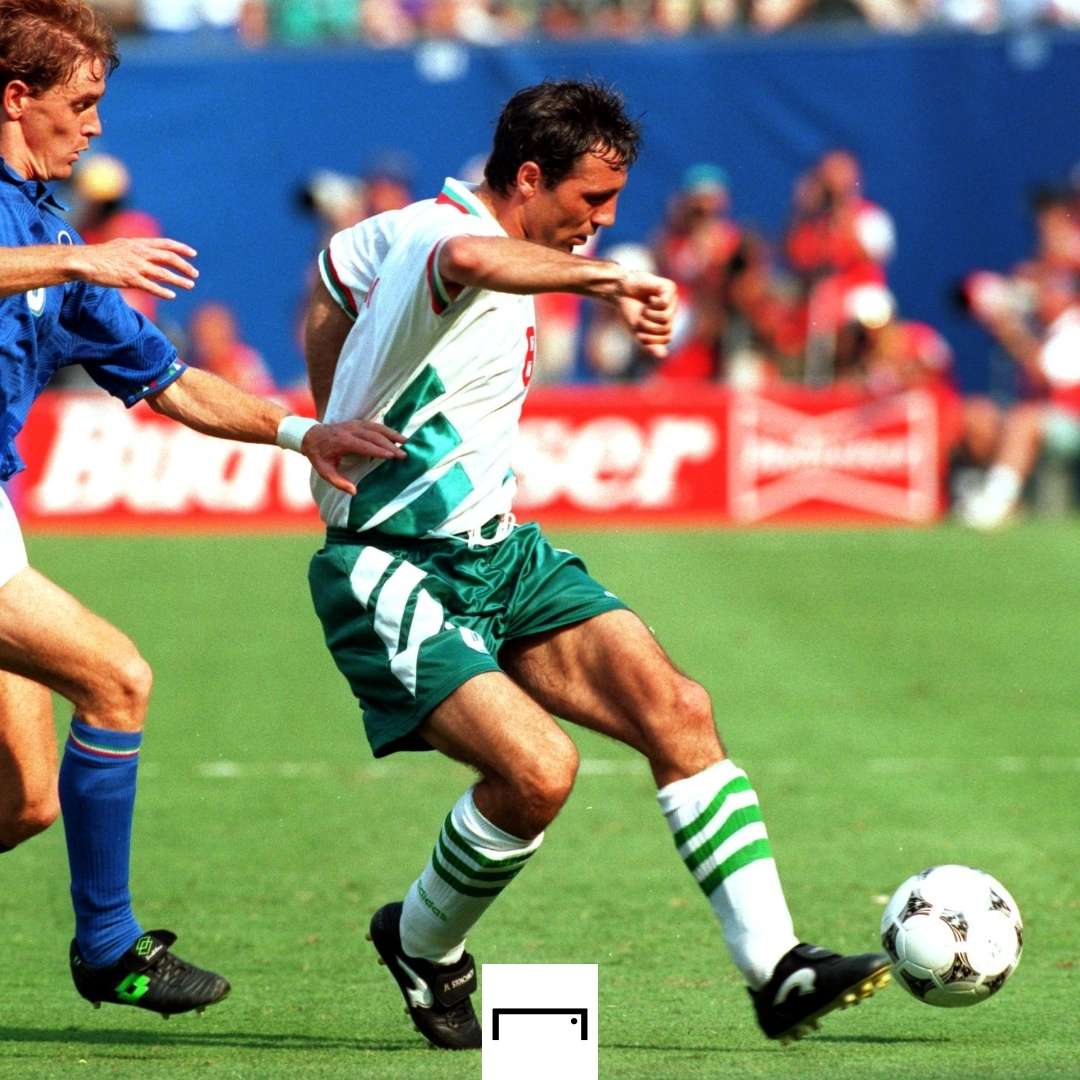 Getty/GOAL
Getty/GOALAfter Bulgaria had battled past Mexico – Stoichkov had opened the scoring in a 1-1 draw at Giants Stadium with a searing strike – he scored a Maradona-esque free-kick equaliser in the 2-1 quarter-final win over Germany that shocked the world.
As the press fawned over his stunning set-piece, a typically spiky Stoichkov quickly pointed out that he had actually scored a better one against Nigeria only to see it disallowed by the officials.
He was also asked if he were worried about being wound up by Italy's defenders.
"No," he responded, "I have more experience now... If anything, maybe I will be the one to provoke the Italians."
He did at least threaten to spark a comeback against the Azzurri, slotting home a third penalty of the tournament to halve Bulgaria's deficit after Roberto Baggio's early double.
But Bulgaria were beaten 2-1, and Stoichkov and his exhausted team-mates had nothing left to give in the third-placed play-off, losing 4-0 to Sweden.
Nonetheless, Stoichkov won the Golden Boot (along with Oleg Salenko) and that played a key role in him being awarded the Ballon d'Or for 1994, ahead of Baggio.
"This proves that God is Bulgarian," a delighted Stoichkov said, even if he looked suitably stoic in his promotional photos.
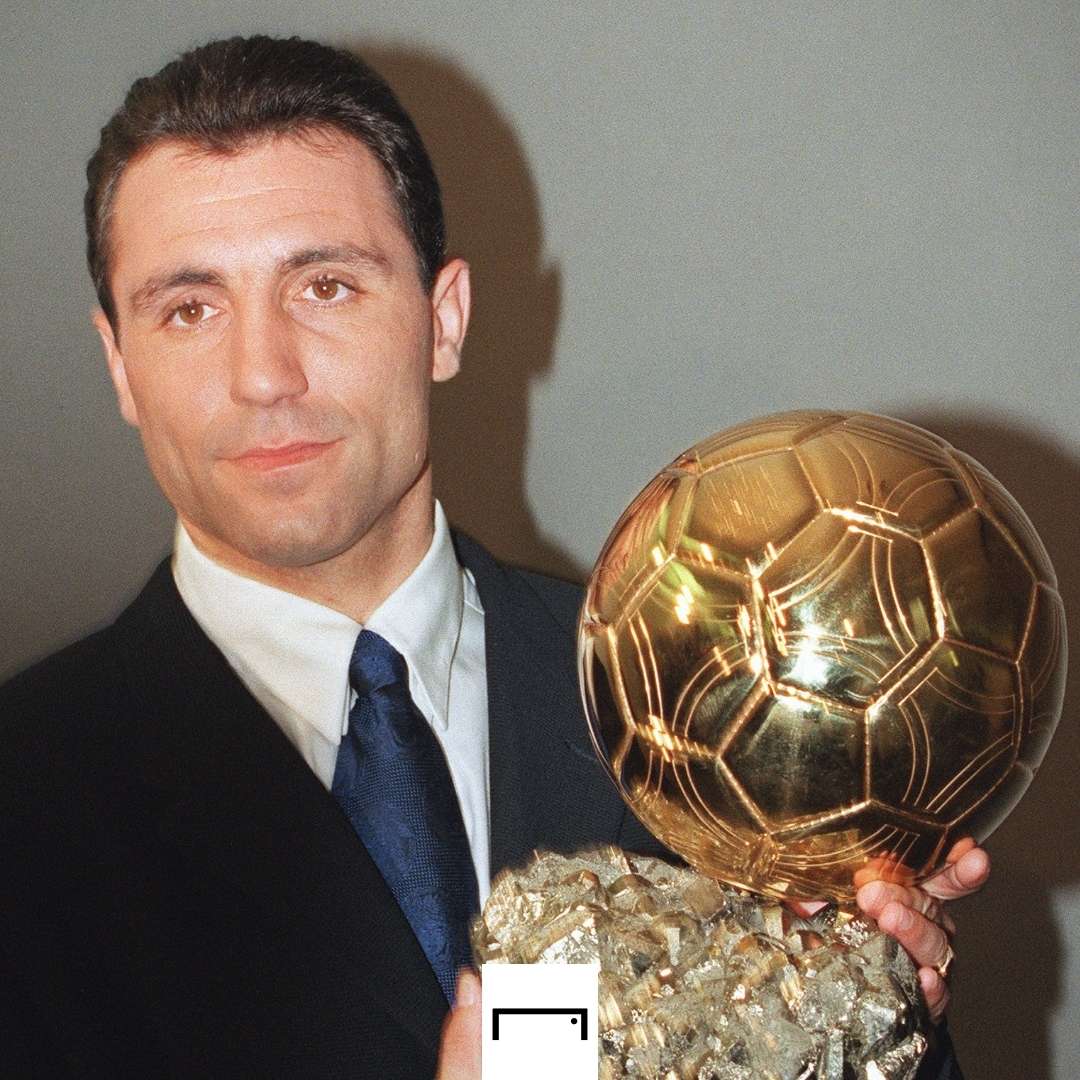 Getty/GOAL
Getty/GOALOf course, many would dispute the notion that there was anything divine about a man who was later sued in the US for breaking the leg of a former university player in a friendly.
Even today, Stoichkov still struggles with the inner demons that have plagued him since long before that Bulgarian Cup final brawl.
"I will tell you one thing: whether I have black hair or white hair, that mad boy will live inside me forever," he admitted. "It will always be like that."
But it at least proves that he has never forgotten where he came from. Indeed, Stoichkov gave the money he received for winning the Golden Boot at USA 94 to an orphanage in Sofia.
"Mine was not a happy childhood," he once said of his charity work. "I had tough moments, difficult. I know the weight of unhappiness and I know what a child feels when it suffers."
Stoichkov may not be very Christ-like but he has certainly had his cross to bear.
